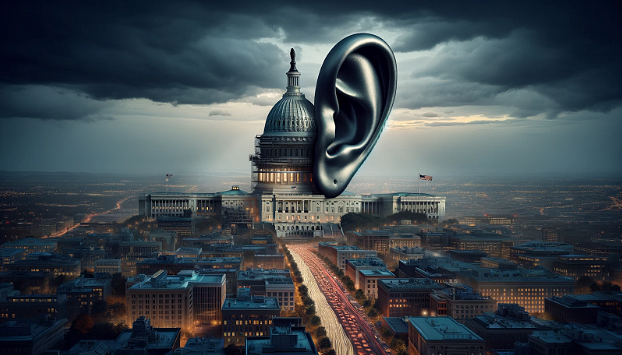US Votes to Reauthorize Controversial Surveillance Laws

The US Senate has voted to reauthorize controversial surveillance laws, extending government spy powers for another two years. The bill, passed with bipartisan support by a vote of 60-34, extends Section 702 of the Foreign Intelligence Surveillance Act (FISA), allowing the government to gather communications without a warrant. The decision comes after a tumultuous journey through Congress, marked by debate and opposition from senators across the political spectrum.
Section 702 of FISA permits the government to collect communications between individuals living outside and inside the US without a warrant. While proponents argue that the law is critical for combatting terrorism and detecting foreign spies, privacy advocates have long pushed for the addition of a warrant requirement and raised concerns about the potential for misuse.
The bill's passage created unlikely alliances between civil-liberty-minded Democrats and Republicans concerned about expanding government surveillance powers. A coalition of senators on both the far left and right of their parties, including Sens. Bernie Sanders and Mike Lee, voted against the measure.
The reauthorization bill faced hurdles in both the House and Senate. In the House, consideration was complicated by former President Donald Trump's influence, who urged Republicans to oppose the bill. After three failed attempts, the House passed the bill 273-147, leading to further debate and amendments in the Senate.
Efforts from both parties to mandate that the government secure a warrant before searching its databases for communications involving Americans fell short before the final Senate vote.
Senators proposed amendments to the bill, including one authored by House Intelligence Committee Chair Mike Turner, which critics argued would dramatically expand surveillance authorities. However, these amendments were ultimately rejected, with leadership arguing they were unnecessary and would harm American interests.
The Senate's decision to pass the bill comes after days of consideration and debate, with senators slogging through multiple amendments before reaching a final vote early Saturday morning. President Joe Biden is expected to sign the measure into law, concluding a contentious legislative process.
While supporters of the reauthorization bill assert that it is essential for national security, opponents, including the Information Technology Industry Council (ITI), continue to voice concerns about potential abuses of surveillance powers.
The reauthorization of Section 702 of FISA reflects the complex and contentious nature of government surveillance laws in the modern digital age. To protect your online communication, it’s crucial to use a trustworthy VPN.



Please, comment on how to improve this article. Your feedback matters!